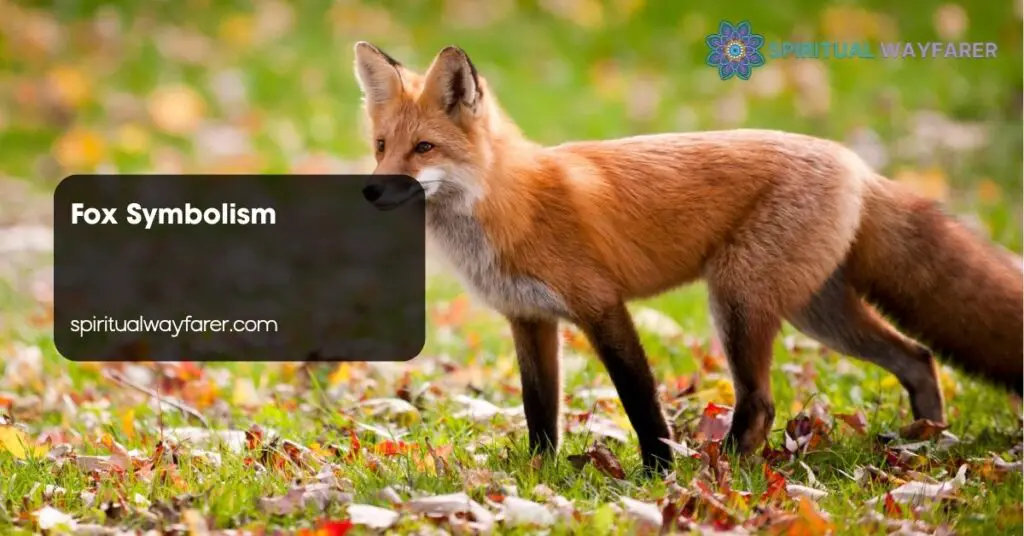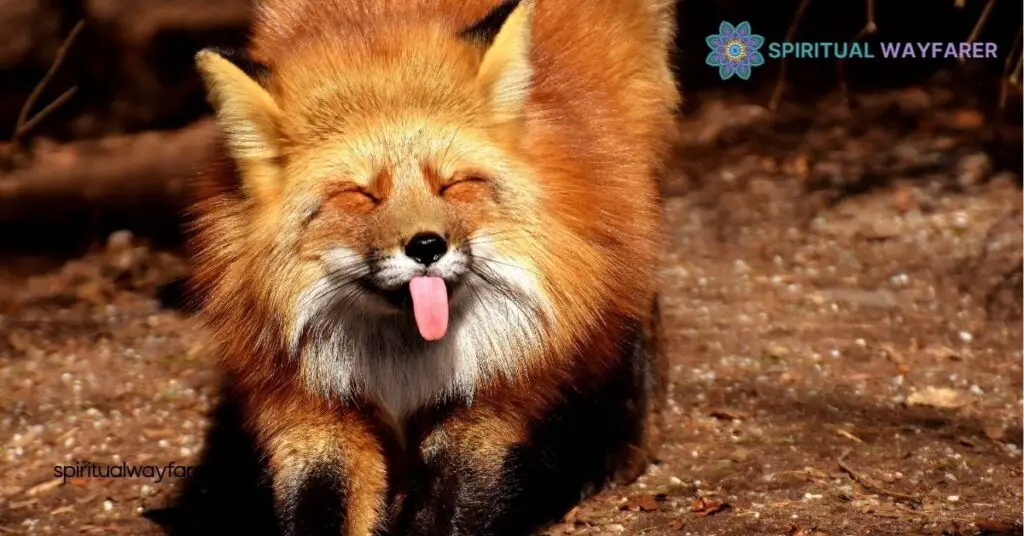Throughout history, the fox has captivated our imagination with its remarkable symbolism. We explore how this clever creature represents intelligence adaptability and transformation across various cultures. By exploring into fox symbolism we uncover deeper meanings that resonate with our own experiences and aspirations.
From ancient folklore to modern storytelling the fox embodies traits that inspire and guide us. Whether it’s the cunning trickster or the wise guardian understanding fox symbolism sheds light on our connection to nature and our personal journeys. Join us as we unravel the rich tapestry of meanings behind this fascinating animal.
The Cultural Significance Of Foxes
Foxes hold a prominent place in various cultural narratives, symbolizing intelligence and adaptability across different societies.
Ancient Mythologies
In Japanese mythology, the fox, or kitsune, represents wisdom and supernatural abilities. They often serve as messengers for the Shinto deity Inari, embodying both protection and trickery. Celtic folklore views the fox as a symbol of cunning and survival, frequently appearing in legends that highlight its strategic nature. Similarly, Native American traditions regard the fox as a teacher of cleverness and transformation, teaching valuable life lessons through its actions. These ancient stories emphasize the fox’s role as a bridge between the physical and spiritual worlds, underscoring its enduring influence.
Modern Interpretations
Today, fox symbolism extends into literature and popular culture, where it continues to signify intelligence and adaptability. In contemporary literature, characters like Robin Hood’s Merry Men showcase foxes as resourceful and strategic heroes. Animated films often portray foxes with anthropomorphic traits, improving their appeal and reinforcing their clever image. Also, foxes are prevalent in modern branding, representing agility and innovation for various businesses and products. This ongoing representation highlights the fox’s ability to remain relevant and revered in today’s ever-changing cultural industry.
Fox Symbolism In Literature
Foxes have long served as pivotal symbols in literature, embodying a range of attributes that enhance storytelling and thematic depth.
Folktales And Fairy Tales
We explore how foxes feature prominently in folktales and fairy tales across various cultures. Reynard the Fox stands out in medieval European literature, representing cunning and resourcefulness. European folktales frequently depict foxes outsmarting other animals, highlighting their intelligence. In Asian folklore, such as the Japanese kitsune stories, foxes symbolize transformation and supernatural abilities. These narratives use foxes to convey moral lessons and cultural values, reinforcing their role as versatile literary symbols.
Contemporary Fiction
In contemporary fiction, fox symbolism continues to evolve, reflecting modern themes and societal changes. Authors incorporate foxes to signify adaptability and survival in complex environments. For instance, in fantasy novels, foxes often appear as shapeshifters or guardians, bridging the natural and mystical worlds. Also, urban narratives use foxes to represent resilience and cunning in handling human-dominated landscapes. This ongoing representation in modern literature underscores the fox’s enduring relevance and its ability to resonate with current audiences.
Foxes In Art And Media
Foxes continue to captivate artists and audiences alike, symbolizing a range of qualities across different mediums. Their versatile representation highlights their enduring significance in both traditional and modern contexts.
Traditional Art Depictions
In traditional art and folklore, foxes embody several symbolic meanings:
- Cunning and Intelligence: We see foxes portrayed as clever and resourceful in Aesop’s Fables. These stories emphasize their wit, deception, and adaptability, reflecting the fox’s role as a master strategist.
- Spiritual and Mystical Roles: Celtic mythology views the fox as a guide through the spirit industry. Similarly, many shamanic cultures depict the fox as a spiritual guide or a conduit for evil spirits, underscoring their connection to the supernatural area.
- Heraldry: Foxes feature prominently in heraldic traditions, symbolizing wit, cleverness, and strategic thinking. Families often include foxes in their crests to represent these esteemed qualities.
Symbolism In Movies And TV
In contemporary movies and television, fox symbolism evolves to reflect modern themes and narratives:
- Resourcefulness and Adaptability: Characters like Fantastic Mr. Fox showcase the fox’s ability to navigate complex situations with ingenuity. These portrayals highlight the fox’s role as a problem-solver and survivor.
- Mystery and Trickery: Foxes often appear as enigmatic characters with hidden motives. This aligns with their traditional image of cunning and adds depth to storytelling by introducing elements of suspense and intrigue.
- Agility and Freedom: Animated series frequently depict foxes as agile and free-spirited beings. This representation emphasizes their grace and independence, making them appealing protagonists and mascots for ever-changing brands.
- Symbolic Guides: In some narratives, foxes serve as mystical guides, leading characters through groundbreaking journeys. This role connects back to their spiritual symbolism in traditional folklore, bridging ancient and modern storytelling.
By integrating these diverse symbols, movies and TV continue to honor the fox’s rich legacy while adapting its meanings to resonate with today’s audiences.
Psychological Interpretations Of Fox Symbolism
Intelligence and Cunning
We recognize the fox as a symbol of intelligence and cunning, embodying quick thinking and strategic problem-solving. This representation encourages us to devise creative answers when facing obstacles and to trust our instincts in challenging situations.
Adaptability and Resilience
Foxes illustrate adaptability and resilience through their ability to thrive in diverse environments. This symbolism reminds us to remain flexible and responsive, allowing us to navigate life’s changes with grace and strength.
Intuition and Inner Wisdom
The fox symbolizes heightened intuition and inner wisdom, emphasizing a strong connection to our inner selves. This aspect inspires us to rely on our awareness and intuitive insights when making decisions and understanding our experiences.
Conclusion
The fox stands as a powerful symbol across cultures and time periods. Its traits of intelligence and adaptability inspire us to navigate our own challenges with creativity and resilience. By embracing the fox’s wisdom we connect deeper with nature and our inner selves. This timeless symbol encourages us to trust our instincts and remain resourceful in the face of change. As we continue to explore and appreciate the rich meanings behind fox symbolism we enrich our understanding of the industry and our place within it.
Frequently Asked Questions
What does the fox symbolize in different cultures?
The fox symbolizes intelligence, adaptability, and transformation across various cultures. In Japanese folklore, the kitsune represents wisdom and supernatural abilities. Celtic traditions view the fox as a cunning survivor, while Native American stories see it as a teacher of cleverness and transformation. These diverse interpretations highlight the fox’s role as a bridge between the physical and spiritual worlds, reflecting its versatile nature and enduring significance in cultural narratives.
How is the fox portrayed in folklore and storytelling?
In folklore and storytelling, the fox is often depicted as cunning and wise. Stories like Reynard the Fox showcase its resourcefulness and intelligence, while Japanese kitsune tales emphasize its supernatural and transformative qualities. These portrayals use the fox to convey moral lessons, cultural values, and themes of survival and adaptability, making it a pivotal character that enhances the depth and engagement of the narrative.
What is the cultural significance of foxes in mythology?
Foxes hold significant cultural roles in various mythologies. In Japanese culture, the kitsune serves as a messenger for the Shinto deity Inari, symbolizing wisdom and supernatural powers. Celtic folklore portrays the fox as a clever survivor, and Native American traditions view it as a symbol of cleverness and transformation. These mythological representations underscore the fox’s importance as a symbol bridging the natural and spiritual realms.
How are foxes represented in modern literature and media?
In modern literature and media, foxes are portrayed as resourceful heroes, enigmatic characters, and symbols of agility and innovation. Contemporary fiction uses fox symbolism to reflect themes of adaptability and survival in complex environments. Movies and television shows continue to honor the fox’s legacy by depicting it as a problem-solver and an agile being, maintaining its relevance and appeal in today’s cultural landscape.
What role do foxes play in art?
In art, foxes symbolize cunning, intelligence, and spiritual significance. Traditional artworks often depict foxes as clever characters in fables or as mythical guides in Celtic mythology. Contemporary art continues this tradition, portraying foxes in ways that highlight their resourcefulness and agility. These representations celebrate the fox’s rich legacy and adapt its meanings to resonate with modern audiences.
How does fox symbolism relate to personal experiences and psychology?
Fox symbolism relates to personal experiences by embodying traits like intelligence, adaptability, and intuition. Psychologically, the fox encourages creative problem-solving, resilience, and trusting one’s instincts. It serves as a reminder to navigate life’s changes gracefully and rely on inner wisdom. This symbolic connection helps individuals understand and harness these qualities in their own lives.
Why are foxes used in branding and marketing?
Foxes are used in branding and marketing due to their association with agility, intelligence, and innovation. Their clever and resourceful image makes them ideal symbols for companies aiming to convey these traits. The fox’s ability to adapt and thrive in various environments mirrors the desired qualities of businesses striving for success and versatility in the modern market.
What lessons can we learn from fox symbolism?
From fox symbolism, we can learn the importance of intelligence, adaptability, and resilience. The fox teaches us to navigate complex situations with cunning and resourcefulness, adapt to changing environments, and trust our instincts. These lessons encourage personal growth, creative problem-solving, and the ability to transform challenges into opportunities.
How have foxes been depicted in ancient and modern mythologies?
In ancient mythologies, foxes like the Japanese kitsune and Celtic survivors symbolize wisdom and cleverness. In modern mythologies, they continue to represent resourcefulness and agility. These depictions have evolved to reflect contemporary themes while maintaining the fox’s traditional attributes, ensuring its continued relevance and reverence in storytelling and cultural narratives.
What is the significance of the fox as a bridge between the physical and spiritual worlds?
The fox’s significance as a bridge between the physical and spiritual worlds lies in its representation of both earthly cunning and mystical wisdom. This duality allows the fox to act as a messenger or guide in various cultural narratives, connecting humans with deeper spiritual insights. It embodies the balance between practical intelligence and intuitive understanding, enhancing its role in myths and stories.



















